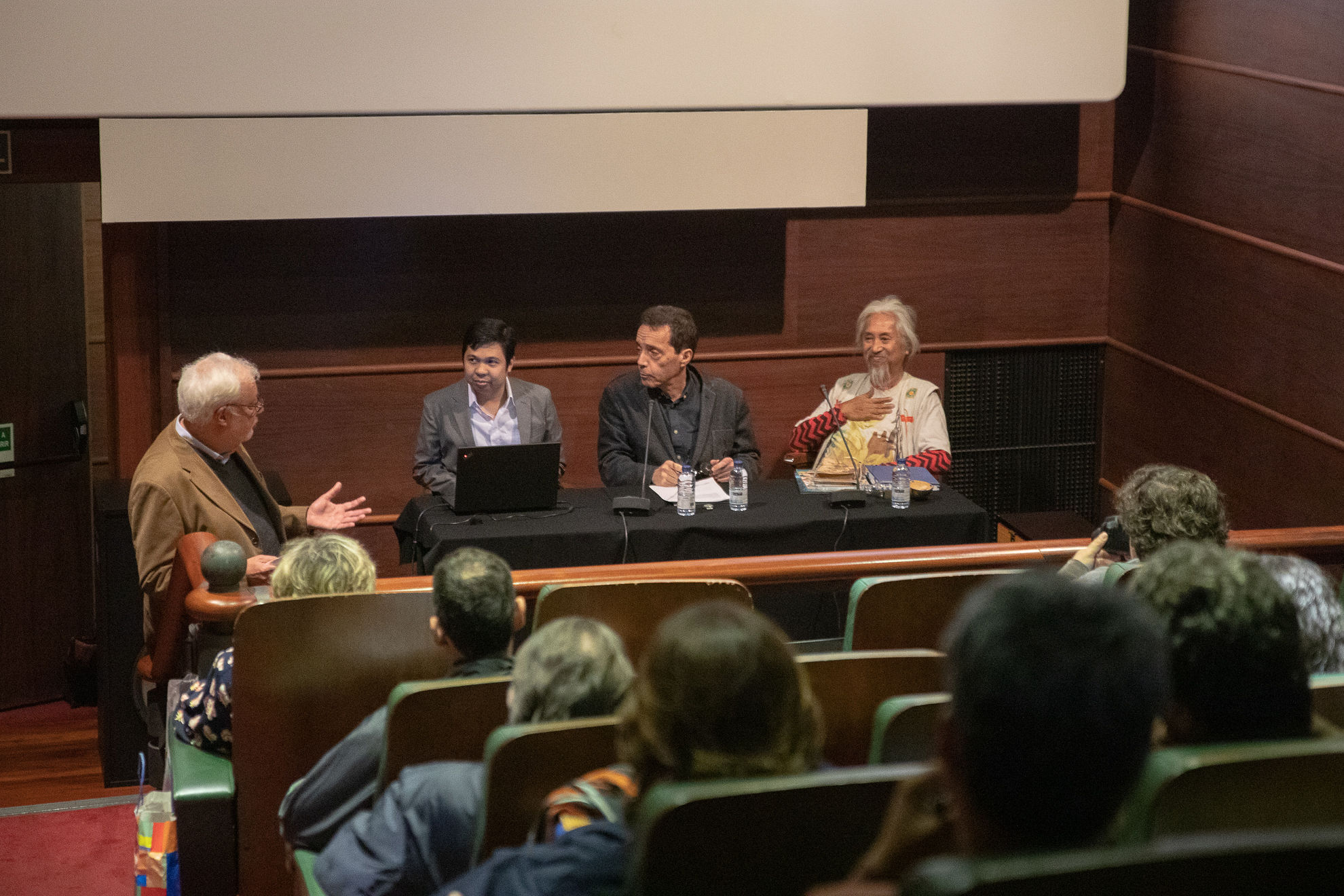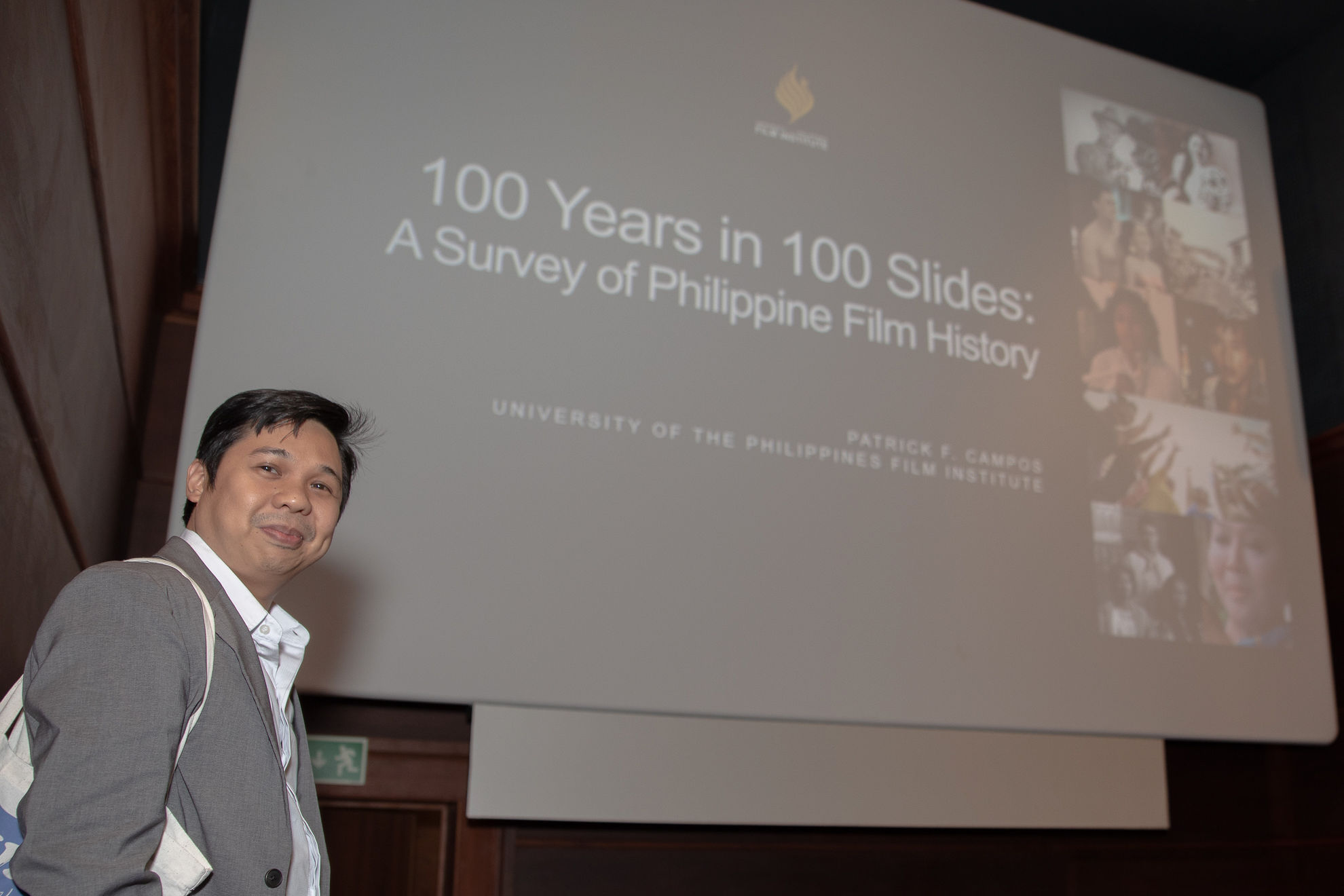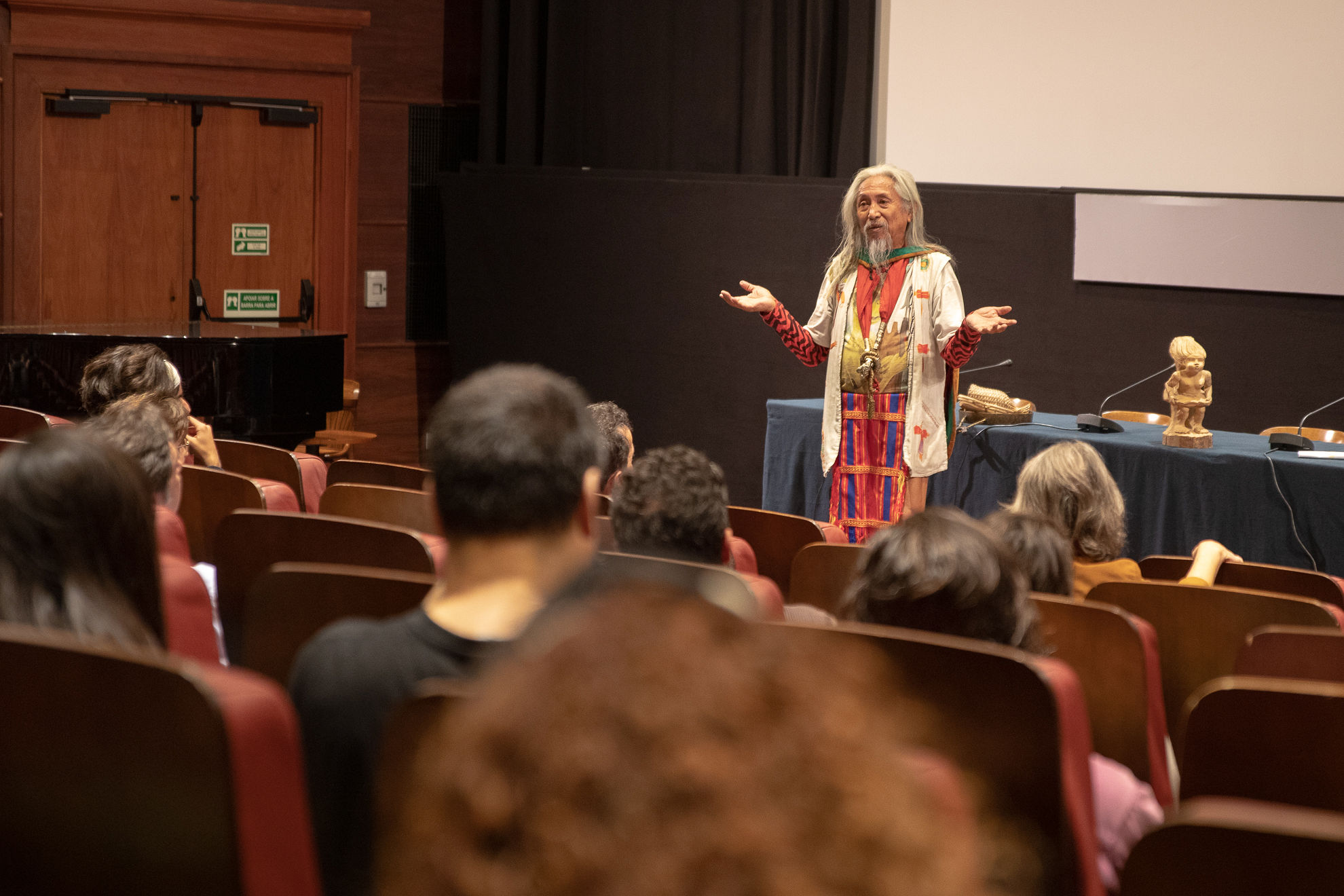
(left to right) Cinemateca Portuguesa Director José Manuel Costa, Mr. Antonio Rodriguez, Film Programmer, Professor Patrick Campos, Kidlat Tahimik, Film Director and Philippine National Artist at the Conference on Philippine Cinema at Cinemateca in Lisbon, Portugal
12 November 2019, LISBON – In celebration of the 100 years of Philippine Cinema and the Philippine Cinema Retrospective in Portugal, a conference on Philippine cinema was held at Cinemateca Portuguesa in Lisbon.
The conference gave an in-depth look of Philippine cinema not only from a historical and analytical perspective but also on the developments of the Philippine independent film industry. University of the Philippines (UP) Professor and UP Film Institute Director Patrick Campos gave an informative presentation entitled “100 Years in 100 Slides: A Survey on Philippine History where he discussed the evolution of Philippine cinema and highlighted key historical events and phenomena in Philippine films in the last 100 years. Professor Campos also gave his reflection on the 100 years of Philippine cinema and how the history of Philippine cinema can teach the next generation of Filipino film makers.

University of the Philippines (UP) Professor and UP Film Institute Director Patrick Campos gave a presentation on the qualitative survey of Philippine Film History.
The presentation further provided insights on the “re-imagining of lost cinema” during the pre-war years in the Philippines beginning with Jose Nepomuceno considered, the Father of Philippine Cinema. Professor Campos also presented an examination of the significant works from various periods in Philippine cinematic history, its issues and representation.
After the presentation of Professor Campos, Kidlat Tahimik, Philippine National Artist for Film gave a brief introduction on his ground making film Mababangong Bangungot (Perfumed Nightmares) (1977). Kidlat Tahimik talked about finding one’s inner “duende” his anachronism for the inner soul and truth to filmmaking. He further explained that by trusting your “duende” instead of formal training you will be able to to find the many beautiful stories that are being bypassed because of today’s blockbuster films.
During the conference, Kidlat Tahimik showed several symbols such as the bamboo camera which serves as a reminder to tell independent local stories and do away with the Hollywood formula for making films. He also showed two wooden sculptures, Inhabian, the wind goddess of the Philippines, the deity to whom Ifugaos pray when typhoons approach and Marilyn Monroe in her immortal Hollywood pose, which he considers the two opposing wind goddesses. He explained that the sculptures further represented cinema favoring Western myths over local narratives where the two wind goddesses are fighting for the attention of the independent film maker.

Kidlat Tahimik, Philippine National Artist for Film discusses the importance of originality and not being restricted with rules and “standards” of film making.
The ground making film written and directed by Kidlat Tahimik and which he also edited, co-shot, and produced tells the story of a young Filipino jeepney driver from Barangay Balian, Laguna in the Philippines who is infatuated with the idea of space travel and Western culture who gradually becomes disillusioned after living in Paris. Kidlat Tahimik’s film shows the impact of post colonization in a developing country on a person’s quest for his identity.
After the screening, Kidlat Tahimik, the holistic, free-spirited, and joyfully rebellious film director who has committed a lifetime of independent creativity, performed a skit on the impact of colonialism on the indigenous people and how Western culture influences them in their postcolonial period. Tahimik’s skit also gave the audience the awareness to recognize the beauty of indigenous knowledge and originality and to let that become a center of a film maker’s storytelling.
The Conference on Philippine Cinema is part of Sine, Cinema das Filipinas – Nos Cem Años do Cinema Filipino (Philippine Cinema – Hundred Years of Philippine Cinema), was made possible through the immense support provided by former Senator and now Deputy Speaker Loren Legarda of the House of Representatives for her contribution to the Philippine Embassy’s cultural diplomacy initiative with the collaboration of the Film Development Council of the Philippines (FDCP) and Cinemateca Portuguesa – Museu do Cinema.
The Conference and the succeeding film screening were well attended by Portuguese film students, film enthusiasts, media, and members of the Filipino community. The Philippine cycle of films will be shown daily until 30 November 2019.

